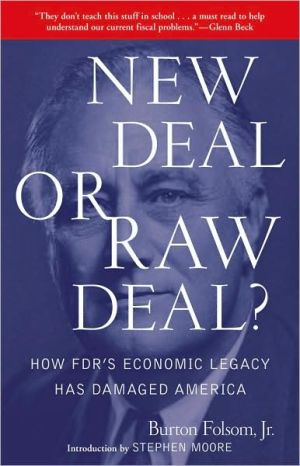Inventing the Axis of Evil: The Truth about North Korea, Iran, and Syria
Search in google:
An "authoritative and informative" (The Nation) primer on the countries caught in the crosshairs of the Bush administration, by three renowned experts.Ever since the "axis of evil" label was first applied by President Bush in his 2002 State of the Union address, the hawks in his administration have left little doubt as to where they intend to turn their attention after Iraq: North Korea, Iran, and Syria. Yet most Americans know very little about these three countries beyond what the Pentagon has told them.For those wanting to know more about "who's next," this "timely exposition on global (in)stability" (Korean Quarterly) by three leading experts on each country sets the record straight, confronting relentless fear-mongering with hard facts. The authors explore each country's history and internal politics alongside the spotty record of past U.S. interventions, including the Korean War and the CIA-sponsored overthrow of Iran's elected prime minister in 1953. As one reviewer pointed out: "The most important thing we know about Syria is that we really don't know what's going on in Syria" (Slate). While entertaining no illusions about these despotic regimes, Inventing the Axis of Evil demonstrates that the truth is far more complicated than some would have us believe. Kirkus Reviews Is there an axis of evil? Perhaps, but its headquarters may be in Washington. Kim Jong Il, the North Korean dictator, is not a nice man. But he has this in common with North Korea's would-be liberator, writes longtime Asia hand Cumings (Univ. of Chicago): "Like Bush, he has to contend every day with the knowledge that he would not be where he is without Daddy's provenance." Daddy, Kim Il Sung, wasn't a nice man either, but, Cumings argues, he was essentially forced into his role as Dr. Evil: isolated by virtue of his communist affiliations by the Americans after Korea was relieved of its Japanese occupiers following WWII, he and his followers were walled up north of Pyongyang and kept from the community of nations by an "ill-understood American hegemony" that preferred Japanese collaborators to resistance leaders. Why the saber-rattling? With Bush, it appears to be personal: "In a recent discussion . . . he blurted out, 'I loathe Kim Jong Il!' " So it is with Iran: the American government propped up a hated shah, then professed surprise when the Khomeini revolution painted the US as the bad guy. There's not a shred of evidence that the current Iranian government helped Osama bin Laden perform his evil work, writes Iran specialist Abrahamian (CUNY), but that didn't keep the Bush regime from charging that Iran was a bedfellow of terrorism. No matter: writes Abrahamian, "The Iranian regime, despite its problems and weaknesses, is not a pack of cards perched to collapse because of much huffing and puffing in Washington and Los Angeles." As a onetime ally of Iraq, Syria is slightly more problematic, acknowledges Israeli scholar Ma'oz (Hebrew Univ. of Jerusalem). Ma'oz suggests that whileBush's bluster is unlikely to earn any friends in Damascus, a little friendliness-and a resumption of foreign aid-would render the Ba'ath regime more cooperative. All in all, a persuasive argument that the axis-of-evil trope is as illusory as those elusive WMDs.
Editor's note1Decoupled from history: North Korea in the "Axis of Evil"12Empire strikes back : Iran in U.S. sights933Damascus vs. Washington : between the "Axis of Evil" and "Pax Americana"157








